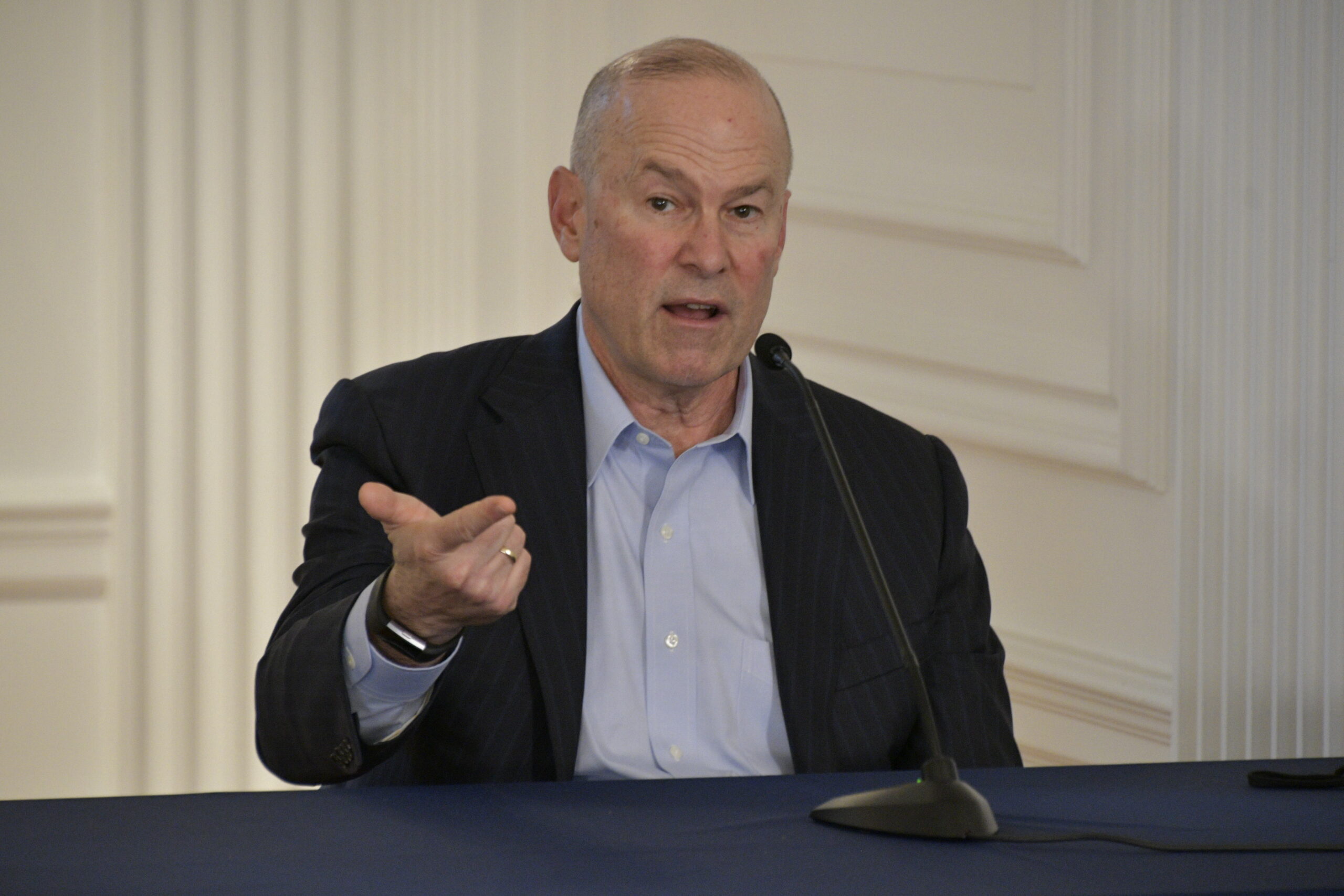MORGANTOWN — Today in Michigan, you’re more likely to be hospitalized with COVID-19 if you’re 30-39 years old than 80 years old or older.
That’s significant for three reasons, COVID-19 Czar Clay Marsh explained Friday.
One, it’s proof that the vaccines are working as hospitalizations among the most vulnerable, but more highly vaccinated, demographics decline.
Two, it’s proof that the much more contagious and lethal B.1.1.7 variant of COVID-19, known as the United Kingdom variant, is as advertised.
And lastly, he said, it should serve as a warning to West Virginia that now is not the time for complacency.
“In Michigan, they are seeing a big growth, a very rapid growth of the United Kingdom variant of the COVID-19 virus,” he said. “They have seen since March 1 a 633% increase in hospitalizations of residents 30-39 years old and an 800% increase in hospitalizations of people 40-49 years old.”
While the state will continue to vaccinate its older population — some 70% of West Virginians 65 or older have received at least one dose — it will begin shifting focus to those more likely to spread more virulent forms of the virus.
“We want to really target, while we target our most vulnerable people, to also target this other group of West Virginians who can spread the virus most quickly, and we’re seeing that in our 16-30 population as the last seven-day average demonstrates,” he said, noting masks and social distancing remain critical.
The first cases of the U.K. variant in the state showed up in February in Morgantown — a city in a border county with a lot of young people — which fits the profile of variant contact tracing, according to State Health Officer Ayne Amjad.
On Thursday, Monongalia County Health Officer Lee Smith put the number of U.K. variant cases in Monongalia County at “less than 10.” The number statewide was 24 Wednesday.
In other news from Gov. Jim Justice’s Friday briefing, Erica Boggess, director of the West Virginia Housing Development Fund, provided details of the Mountaineer Rental Assistance Program announced by Justice in January.
The program covers past due rental payments going back to April 1, 2020, plus three future rent payments. It can also cover past-due and current utilities, including electric, water, gas, sewer and trash removal. Additionally, there is a one-time $300 stipend available for Internet service.
In order to qualify, the household needs to be at or below 80% of the median county income. This county-specific data, as well as program applications are available online at wvmrap.com.
Eligibility also mandates applicants be renters who have experienced COVID-related hardship and be at risk of homelessness or housing instability.
“That can be evidenced by a late utility bill; a past-due rent notice, or an eviction notice,” Boggess said.
Applications for the program are now being accepted. If approved, payments are provided directly to landlords and/or utility providers.
Lastly, Justice said the investigation into the slow reporting of COVID-19 deaths is complete and will be made public next week.
Justice announced 165 previously unreported COVID-19 deaths on March 10 and at least an additional 20 on March 19.
TWEET @DominionPostWV




